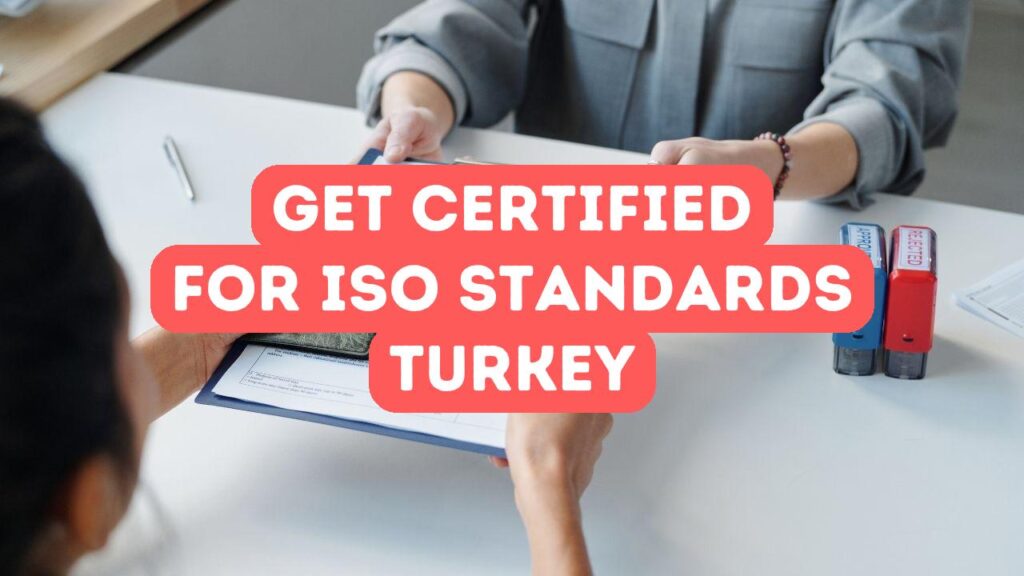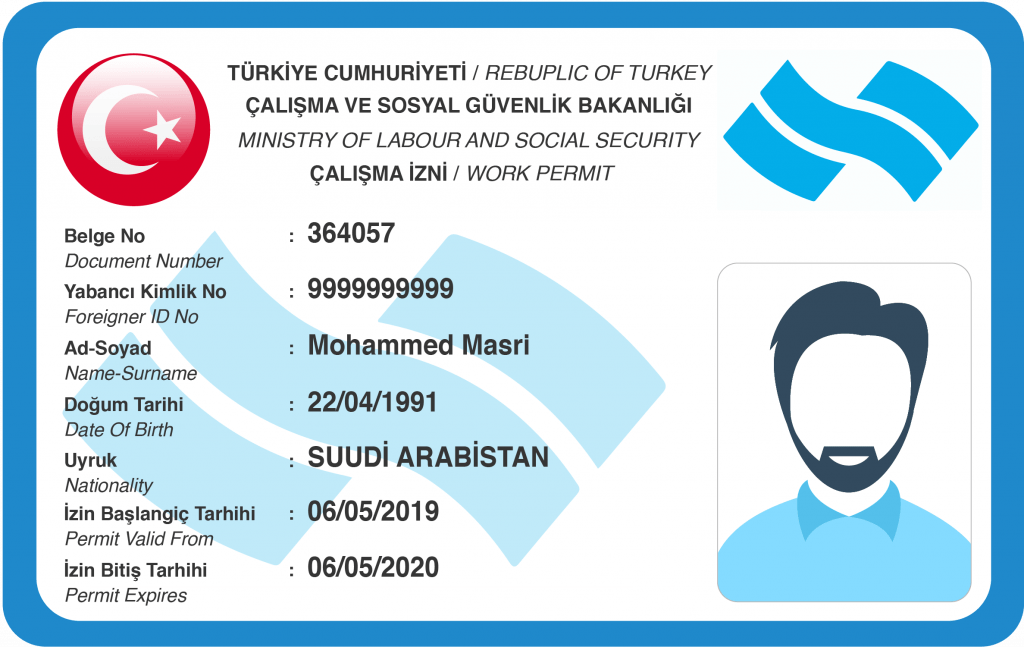Navigating the path to ISO certification in Turkey can feel like a treasure hunt, where the prize is a badge of quality that sets your business apart. In Turkey, attaining ISO certification not only opens doors to global markets but also bolsters your brand’s credibility. Whether you’re eyeing ISO standards in quality management, environmental practices, or information security, the certification process in Turkey requires a thorough understanding. Start by grasping the fundamentals of ISO compliance—knowing which standards apply to your industry is crucial. Then, learn about the certification process in Turkey, which involves thorough documentation and rigorous audits. This journey to get ISO certified might seem complex, but with clarity and preparation, your business can shine brightly on the international stage. Embrace the challenge, because at the end of it, ISO certification in Turkey isn’t just a feather in your cap—it’s a gateway to expanded business horizons.
Understanding the ISO Certification Process in Turkey
Embarking on the ISO certification journey in Turkey begins with understanding the intricate certification process Turkey follows. First, know that ISO standards vary by industry, so pinpointing which standards align with your business is key. Each step is a building block towards ISO compliance. The path requires gathering comprehensive documentation and preparing for detailed audits. These aren’t mere formalities; they’re your map. Clear documentation forms the bedrock of a successful bid to get ISO certified. Accredited certification bodies review this with an eagle eye. It might seem as daunting as climbing Mount Ararat, but remember, each paper signed and review completed brings you closer. This isn’t just about meeting global expectations; it’s about enhancing operational efficiency and competitiveness. For each business in Turkey, conquering the ISO certification process marks a significant stride in showcasing an unwavering commitment to excellence.
Understanding the ISO certification process in Turkey is akin to decoding a complex puzzle. Each piece requires careful handling, from initial assessment to the moment you announce, “We’re ISO certified!” Start by conducting an internal audit to assess your current compliance level. Engaging with a consultant knowledgeable in ISO standards can streamline your efforts, sparing you unnecessary pit stops on this winding road. Following the assessment, address any non-conformities that spring up like hidden hurdles. Remember, in the certification process Turkey offers, meticulous attention to detail ensures you meet ISO compliance. After the internal audit is squared away, roll out a management review. This stage is your golden opportunity to showcase readiness for the external audits that await. Here, proactive preparation and a proactive attitude are your double-edged sword, slicing through potential stumbling blocks. This isn’t just ticking boxes—it’s setting the foundation for successful ISO certification Turkey recognizes and respects.
As you advance on this journey, selecting the right certification body is crucial. Not all bodies are created equal—prioritize those accredited by the Turkish Accreditation Agency to ensure you meet ISO compliance authentically. Their seal of approval is your compass, guiding your business safely through the certification process Turkey mandates. Next, submit your thorough documentation and brace for the external audits. These auditors come armed with keen eyes, seeking any chinks in your armor. This phase might feel like a meticulous dance, but it’s your chance to demonstrate your mastery over ISO standards. With each successful audit, you’re not just checking boxes; you’re proving your commitment to quality and efficiency. Achieving ISO certification Turkey values means your business doesn’t just keep up with competitors—it sets the pace. Ultimately, the certification is not merely a milestone; it’s the start of a continuous improvement journey.
Essential Requirements for ISO Certification in Turkey
Securing ISO certification Turkey starts with understanding the essential requirements. Each ISO standard, whether it’s quality management or environmental stewardship, comes with specific criteria you must meet. Begin by conducting a gap analysis to pinpoint where current practices don’t align with the needs of the ISO standards you aim to achieve. Document your processes meticulously, as detailed records are crucial in the certification process Turkey. Establishing clear policies and procedures is also vital. These form the backbone of ISO compliance, guiding your operations towards consistent quality. Additionally, ensure that your team is on board. Staff training plays a pivotal role in adapting to the new standards. Investing time and resources in these preparatory steps lays a solid foundation for success. So, as you embark on the journey to get ISO certified, remember, it’s less about ticking boxes and more about embedding excellence in your organization’s DNA.
Meeting the essential requirements for ISO certification Turkey demands a strategic approach. Dive into the documentation phase with precision—record each step of your processes, ensuring they reflect ISO standards relevant to your industry. These records serve as your roadmap through the certification process Turkey. Engage a certified consultant if needed; their expertise in ISO compliance can be invaluable. They’ll help you navigate any regulatory labyrinths and keep your goals clear. Achieving ISO compliance is more than just procedural. Foster a culture of quality and improvement among your team members. Host workshops to familiarize your staff with ISO standards, making sure everyone is aligned with your objectives. Equip them with the knowledge they need to adapt and thrive. This unified commitment across your organization not only aids you to get ISO certified but also instills a sense of pride and accomplishment. With dedication and a clear plan, ISO certification Turkey is within your reach.
Once your documentation is solid, the next step is preparing for the audit phase, a crucial part of the certification process Turkey. Audits verify that your practices align with ISO standards, ensuring ISO compliance throughout your business. It’s like having a referee in a game, ensuring every play follows the rules. Auditors will meticulously assess your records and operations, highlighting areas needing improvement. This isn’t just about passing the audit but about embracing a culture of continual improvement. Take audit feedback as valuable insights for refining processes. Open communication with your auditing team can ease tensions and clarify expectations. Simultaneously, internal audits are fundamental in identifying potential issues before external review. Involve your team in these checks to reinforce their understanding and commitment. Remember, the audit is not a hurdle but a stepping stone. By aligning internal and external audit insights, your path to get ISO certified is smoother and more rewarding.
Navigating the Challenges of ISO Compliance in Turkey
Navigating the challenges of ISO compliance in Turkey might seem like walking a tightrope, but with the right balance, your business can excel. The journey begins with a keen understanding of ISO standards relevant to your industry. From there, it’s about immersing yourself in Turkey’s distinct certification process. This path is peppered with rigorous requirements, from ensuring meticulous documentation to passing thorough audits. Yet, it’s not just about compliance; it’s about setting your business on a path to excellence. Think of ISO certification Turkey as your passport to credibility and trust in the global market. Embrace the process by preparing diligently, investing in training, and adapting to evolving standards. With persistence, your business can confidently tick off the boxes of ISO compliance and embrace the vast opportunities that await on the other side. This meticulous preparation isn’t merely a task; it’s your stepping stone to growth.
Embarking on the ISO certification journey in Turkey isn’t just a test of compliance, it’s a strategic move that can transform your business landscape. As you dive into ISO standards, be mindful that each standard has its own set of requirements. The certification process in Turkey calls for a blend of intense focus and thorough understanding—it’s not simply about ticking boxes, but aligning your operations with globally recognized practices. Tailor your approach to fit the nuances of Turkey’s business environment. Encountering audits that seem like scrutinizing microscopes shouldn’t deter you but instead, motivate you to perfect your processes. In the end, getting ISO certified means embracing a culture of continuous improvement. As you navigate these challenges, imagine them as stepping stones, not stumbling blocks, guiding you toward a future ripe with credibility and endless possibilities in the marketplace.
In Turkey, a pivotal aspect of conquering ISO compliance hurdles involves cultivating a proactive mindset. This proactive stance is your compass, guiding you through the labyrinth of ISO certification Turkey. First, identify which ISO standards resonate with your business objectives, be it quality, safety, or environmental responsibility. This clarity precedes the certification process Turkey, which calls for systematic documentation and robust systems. Rather than viewing compliance as a chore, consider it an investment in harmonizing your enterprise with international benchmarks. The structured audits that form part of this process are not merely tests but opportunities to refine and enhance. Remember, getting ISO certified is not an endpoint but a commitment to perpetual enhancement. As you engage with ISO compliance, envision it as laying bricks in the foundation of your business’s future, where each brick adds strength, stability, and trust in a competitive global arena.






